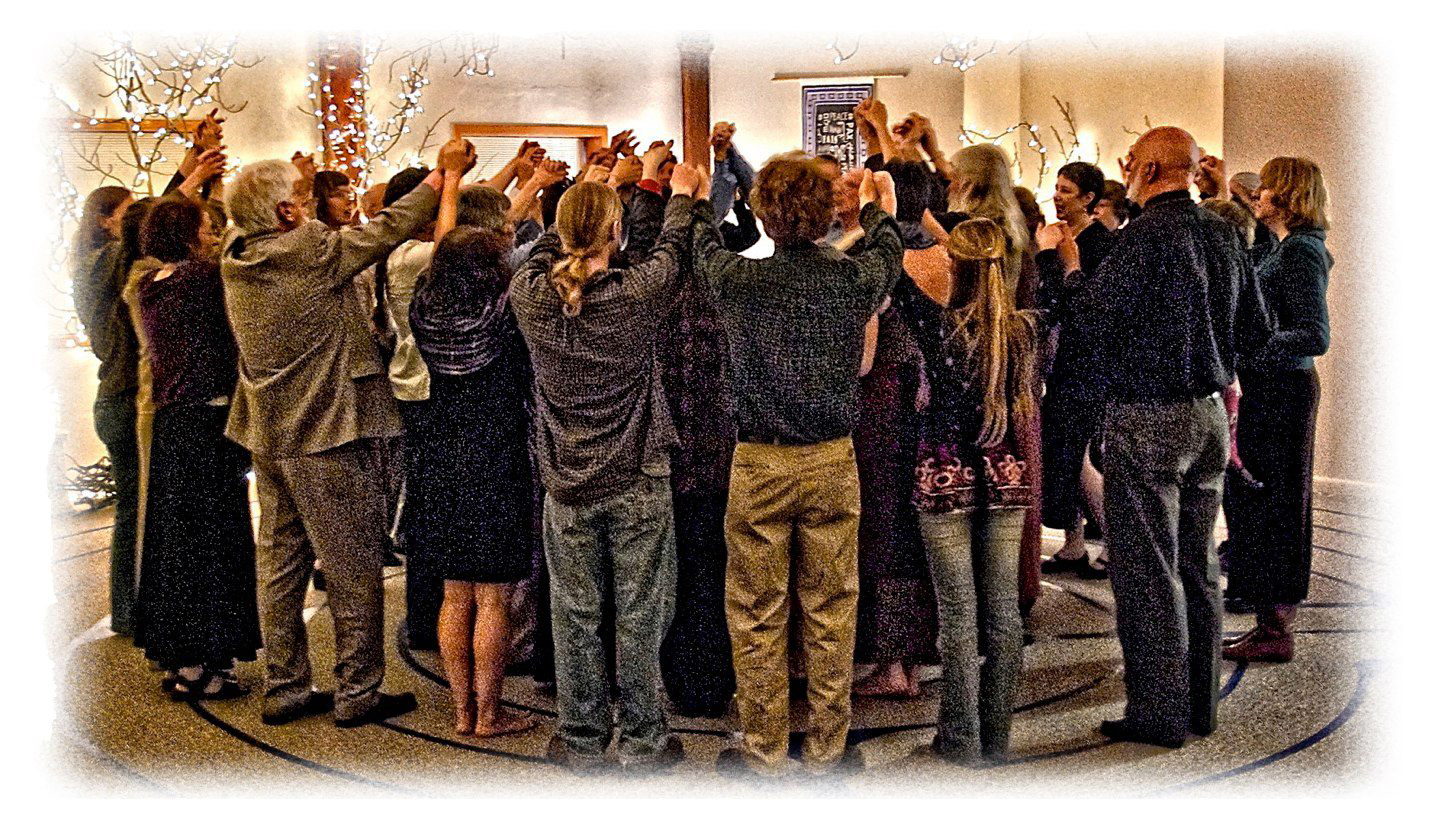God’s Radical Wholeness
Mark 2: 13-22
Roger Lynn
September 11, 2022
God has always been the same. But we human beings have not always been very good at figuring out who God is, and how best to relate with God and with each other. And so it is that down through the years God has continued to challenge us to expand our horizons and push past the barriers we have erected in the name of faith. What we discover in Jesus is a living illustration of God’s ongoing and radical newness among us.
Jesus didn’t allow himself to become caught up in the limitations of the culture around him. As a consequence he often found himself in conflict with those in positions of power. He made them nervous because he challenged their understandings about the ways life works. Indeed, if we are honest, we will often find that Jesus makes us nervous as well, for all of the same reasons. It seems to be a human tendency to want life contained and controlled. Jesus, on the other hand, models a way of life which is decidedly not contained or controlled. In contrast to playing it safe and having things remain the same, we are presented with a call to take risks and step beyond the boundaries of our self-defined safety zones into the world of God’s radical newness.
One of the places where all of this comes into focus is in our relationships. Who we share life with, and how we go about sharing that life matters. It both shapes and defines much about who we are and how we experience life. Will we be open or will we be closed? Will our lives resemble a party or a prison?
An important metaphor in scripture for our relationships is the dinner table. Eating together is about more than just sharing a sandwich – it is about intimacy. It is no accident that some of the first controversies in the Church centered around who was eating with whom. And it is not merely coincidence that the central act of worship in the Church is a meal. 2,000 years later meals remain significant. Remember that in our own recent history it was at “lunch counters” where the battles for racial equality and civil rights often began. So we find Jesus eating with all the “wrong” people – those who were the outcasts and cast-offs of society. “Tax collectors and sinners” is what they are called in Mark’s Gospel. The last, the lost, and the least is another way to put it. Definitely not appropriate dinner guests for polite society or for those who would seek to maintain a respectable religious position in life. But that is exactly who Jesus seeks out. It isn’t that he just accidentally finds himself in their company. He goes looking for them. He deliberately invites them to join him, or else he invites himself to eat in their homes and at their parties.
“Why does he do that?” is what the Pharisees wanted to know. And if we are honest with ourselves, it is probably what many of us would have wanted to know as well. It is simply not what nice people do. It is one thing to talk about loving your neighbor, and perhaps even helping them out of a jam from time to time. But to actually eat and drink with them, on purpose, on a regular basis – well, that’s just too much! And Jesus’ answer doesn’t really help us feel much better about things. “Those who are healthy have no need of a physician, but those who are sick. I have come to call not the righteous but sinners.” (Mark 2:17) It is as if Jesus says, “If your life is working for you, then don’t worry about what I have to offer. But don’t try to stop me from offering new hope to those for whom life is not working. And, while you’re at it, don’t get too over-confident about assuming that your life is working for you.”
Jesus’ message is clear – God is calling us to a life in which there are no “outsiders.” Everyone is invited to the party, and there are no pre-assigned seating arrangements. We all get to eat with each other. It is a way of life which doesn’t always fit with our old patterns. If we allow ourselves to become too concerned with the cultural expectations which have been handed to us, then we run the risk of cutting ourselves off from the full abundance of life which God has in store for us.
We are not necessarily the Pharisees, and in many respects we have come a long ways since that time. But it remains an ongoing struggle, and God continues to challenge us. There are many “tax collectors and sinners” who now find themselves welcomed at our table. But we must always be on the lookout for the barriers we haven’t yet noticed, and the new ones which we continue to erect. Sixty years ago we were being called to expand our horizons regarding racial distinctions. Along the way we’ve also been challenged to examine the socio-economic differences which divide us. More recently the line has centered around the issue of sexual orientation and gender identity. And lately we’ve come back around to the challenge of racial inequality. Each time we invite someone new to the table, there is rejoicing in heaven. And each time, we are reminded once again that there are still more to be invited. Where is the next line for you? Is your comfort zone threatened by people with different theological perspectives? …or worship styles? …or political views? …or cultural backgrounds? …or levels of education? Or perhaps the challenge for you is not so much in who you can accept, but rather in how active you will be in inviting them to share life with you. It is easy to grow complacent as we go about the daily routines of our life. We associate with the same people, because that is who we come into easy contact with. When we meet other people we are accepting, but how much effort do we make in actively reaching out beyond our comfort zones?
Where is God calling us to go? What walls are we being challenged to tear down? How can we actively and intentionally participate in the ongoing and inclusive celebration of God’s radical newness in our lives and in our world? It is an ongoing journey, and we can, with God’s help, begin taking the next steps now.
![]()


0 Comments